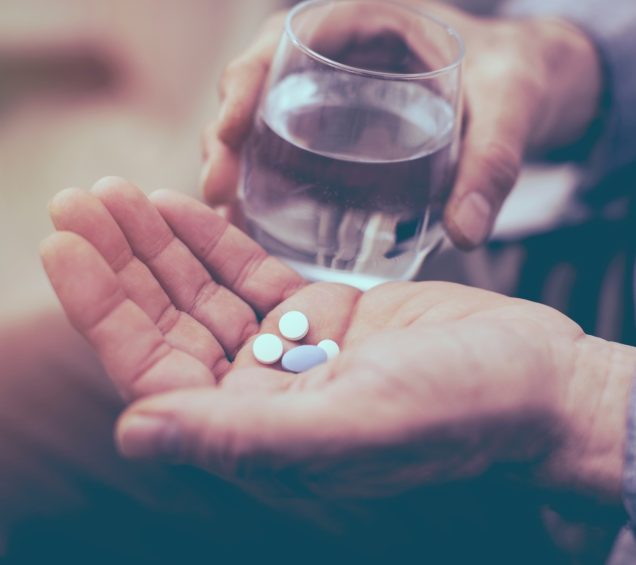What is Medication-Assisted Treatment?
Medication-assisted treatment (MAT) refers to the use of medications, in combination with therapeutic counseling methods, to treat substance use disorders. MAT aims to encourage a whole-patient approach to the treatment of substance disorders. Medications used in MAT are FDA-approved and the programs vary in duration, type of medication, and modes of counseling depending on the needs of the individual in recovery. MAT is frequently utilized for the treatment of opioid addictions, whether that means heroin or opiate-based prescription pain relievers. MAT has proven to be clinically effective, as it decreases the need for inpatient detoxification programs and encourages a path to full recovery.
What are the Medications Used in MAT?
A variety of different FDA-approved medications are used in medication-assisted therapy programs, with the types of medication changing depending on the needs of the individual. Additionally, medical professionals assess the unique histories and needs of each patient, which guides their treatment plans with the medications that will work best For alcohol use disorders, common medications used in MAT paths include acamprosate, disulfiram, and naltrexone, each of which might be used at a different stage in the recovery process. In treatment options for an opioid dependency, MAT may utilize medications such as buprenorphine, methadone, Vivitrol, or naltrexone. In the case of the treatment of opioid use disorders, naloxone may be used to reverse the toxic effects of an opioid overdose. Suboxone, a medication composed of both buprenorphine and naloxone, can also be utilized in MAT. Suboxone treatment is safe and efficient and can be beneficial for folks who don't desire clinical treatment.
Why MAT is Utilized?
As they detox, patients must be kept medically safe. Without medical supervision, detoxification can be deadly. Additionally, medication makes it possible for them to endure a painful process in the least painful way possible so they can complete it without using, and then the medication is carefully controlled so the patient can fend off cravings and insomnia, for example, and receive assistance with physically recovering.
The RX given to the patient varies on who they are and what drugs they have previously used. The brain's opioid and drug receptors are bumped, replaced, and then bound by MAT medications.
Differences Between MAT and MOUD
MAT and MOUD are two different approaches to treating opioid use disorder (OUD). While both approaches offer assistance in managing OUD, there are distinctions.
MAT is a medication-assisted treatment that uses methadone, buprenorphine, and naltrexone to reduce opioid cravings and withdrawal symptoms while allowing people to lead normal lives. MAT focuses on the long-term management of OUD by providing medications that can help support addiction recovery and reduce the risk of relapse. Another key component of MAT is psychotherapy and other therapeutic services to help patients cope with the psychological effects of OUD.
MOUD, on the other hand, is medically monitored detoxification specifically from opiates. It consists of gradually weaning patients off opioids over a period of time with close medical supervision. MOUD is typically a shorter-term treatment that focuses on eliminating opioid dependence so that individuals can start living without opioids. It also uses buprenorphine and naltrexone to reduce cravings and withdrawal symptoms.
The main difference between MAT and MOUD is the duration of treatment, with MAT providing long-term assistance and MOUD being a shorter-term approach to detoxification. Ultimately, individuals need to work with their healthcare providers to determine which approach best suits their needs. MAT and MOUD can be effective treatments for OUD, but the type of treatment needs to be tailored to the individual's needs.
Treatment Efficacy
When considering how to help a friend, loved one, or family member on the path to recovery, or when considering the first steps for yourself, it is important to know which kinds of treatments are effective and why. The caveat to this question is that there is no one best form of treatment for substance use disorders. Treatment programs and approaches will differ for every individual based on their needs, situations, and capacities as well as the substance(s) they are recovering from, the frequency of use, and the physical and mental effects on the body.
MAT is typically a treatment plan for cases of heroin addiction or dependencies on opiate medications such as oxycodone or hydrocodone.
MAT can reduce the discomfort of medical detox programs and support the efficacy of therapy-based treatment systems. MAT also lowers relapse rates. The substance lessens cravings and withdrawal symptoms, allowing the patient to concentrate on therapy to change drug-related attitudes and behaviors, improve healthy living skills, and support them in adhering to their treatment plan and aftercare.
For more information about Caron’s approach to MAT and their reasons for using these programs, consider this blog.
Looking for more information about medication-assisted treatment, recovery paths, treatment options, and resources? Caron offers a range of treatment programs for individuals at every step of the road to recovery, as well as educational resources for loved ones trying to seek more information about how to provide support.
Suboxone® is a registered trademark of Indivior UK Limited. Caron Treatment Center is not affiliated with Indivior UK Limited or its affiliates ("Indivior"), and any reference to it or its intellectual property is for informational purposes only and is not endorsed or sponsored by Indivior.
Continue Learning About What is Medication-Assisted Treatment?
Take the next step:
Start with an online form
-
Caron in Pennsylvania
1-800-854-6023 -
Caron in Florida
1-800-221-6500 -
Breakthrough at Caron
1-800-213-7834



